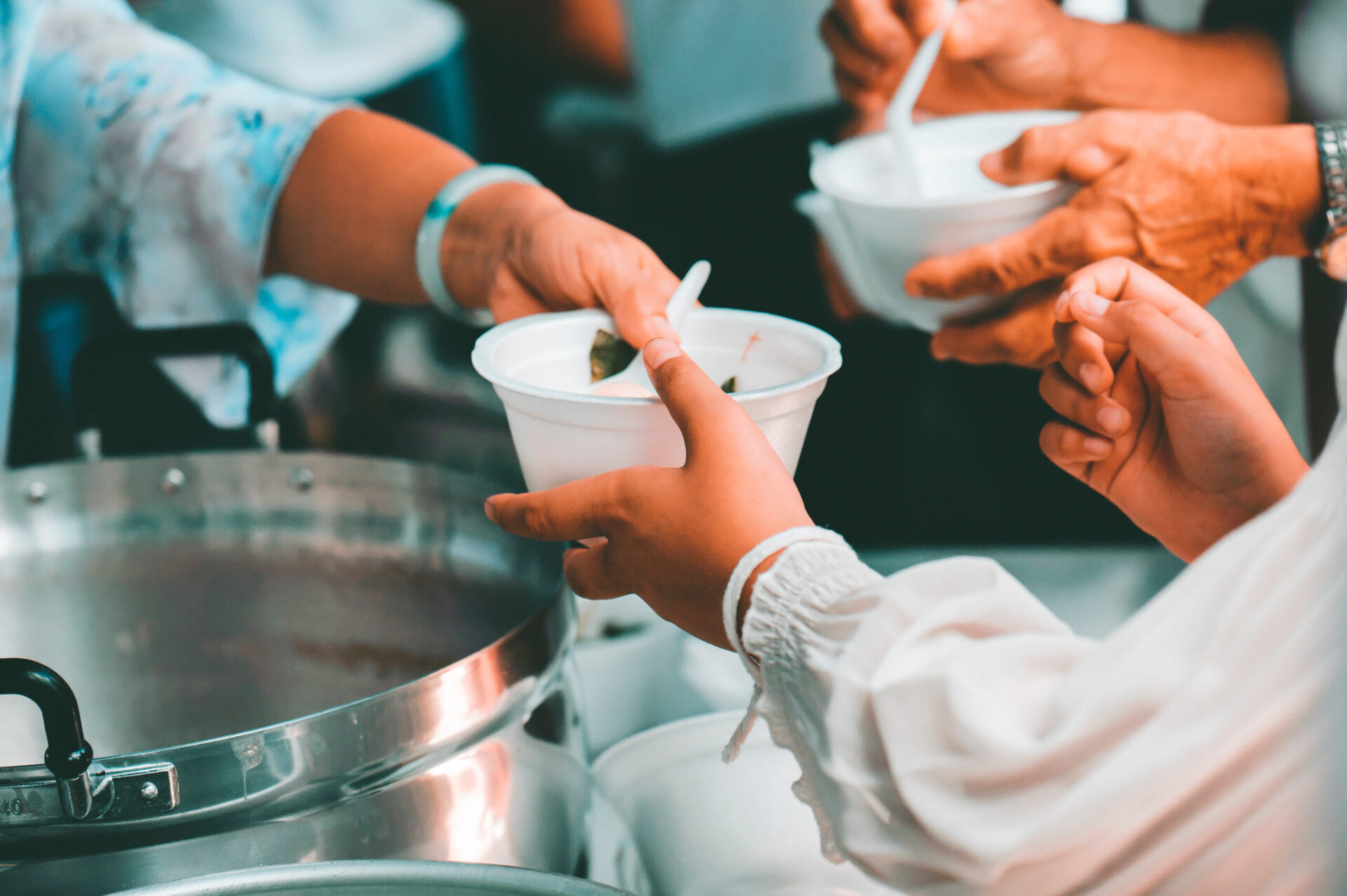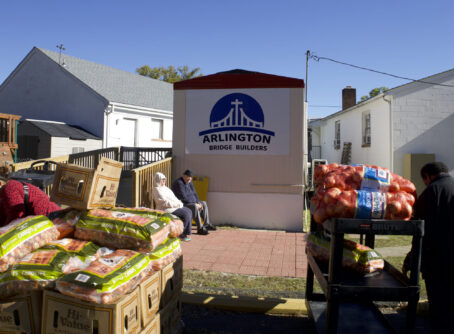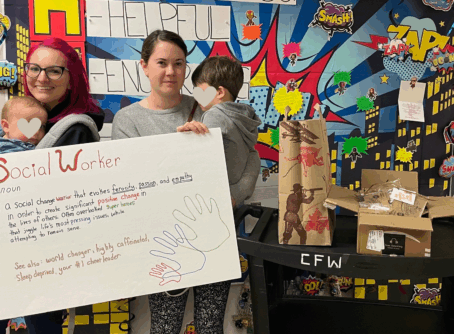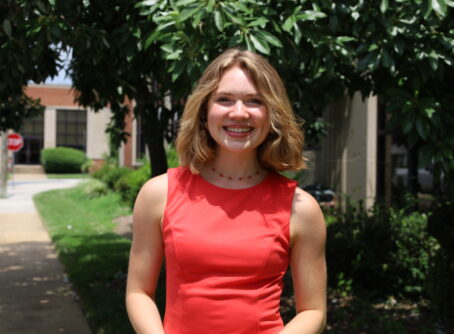
This article is part of our series looking at the Invisible Social Safety Net — all of those houses of worship and faith-based organizations that provide essential social services to their communities, sometimes with the help of government funding and sometimes without that assistance. In order to unleash the power of the social safety net to support our most vulnerable neighbors, CPJ advocates for state, local, and federal governments who need to understand how to partner with and support these “invisible” links who serve not because they have to by law, but because faithfulness to their tradition calls them to serve.
The invisible social safety net is a fitting phrase for Muslim American communities, since they support the greater American community in multiple ways and yet their good work remains invisible.
Over 3 million Muslims reside in the United States, and they are one of the fastest growing populations, projected to be the second largest faith in the U.S. by 2040.Over half are immigrants, mostly from countries in South Asia, the Middle East and Africa. Unfortunately, Muslim American communities, especially since 9/11, face persistent discrimination. Because violence within and from Muslim communities internationally receives the most attention from Western news media, the great acts of social service, generosity and concern for humanity’s wellbeing that defines most Muslim American communities remains unnoticed.
If one delves into the existing research on Muslim American communities, they will find that Muslim Americans share a faith that heavily emphasizes generosity and neighborliness. Muslim Americans direct this generosity toward many philanthropic causes, both domestic and international, including funding nonprofits that serve multifaceted social functions, reaching far beyond the Muslim community. One would also find that mosques serve multifaceted socio-political roles in Muslim communities, including mobilizing Muslims for political and civic engagement.
Islam and Love of Neighbor
The Islamic faith views community as interdependent, emphasizing general welfare and viewing individual rights in the context of the coexisting rights of others. Who is considered a neighbor? A longstanding Muslim prophetic tradition exists which states that one’s neighbor is anyone who lives “forty houses in each direction.” The tradition is saying that anyone can be one’s neighbor. Moreover, Islam demands special attention to be paid to the vulnerable and oppressed. For example, the Hadith literature (the sayings and traditions of the Prophet Muhammad) includes a story similar to Matthew 25:31-45, where Allah judges the goats for not visiting him when he was sick, naked, hungry and in prison.
The Qur’an, the central religious text of Islam, makes clear that religious acts will not be accepted by God unless accompanied by real acts of neighborly love. For example, in Qur’an 3:92, “You will never be able to attain godliness and virtue until you spend of what you love.” According to Islam, one’s possessions are God’s, and God commands that those possessions be used to supply the basic needs of everyone in the community before one uses them elsewhere. To enforce this divine command, the Islamic tradition obligates every Muslim to give a minimum amount of charity periodically so that one’s neighbors will not go hungry.
If these organizations could draw upon government resources to amplify the powerful social work they’re already doing, it would mean more communities in need could receive imperative aid.
American Muslims consider obligatory charity toward one’s individual neighbors to include charity to one’s broader community as well. Examples abound, including the $10 million that Muslim Hurricane Relief Taskforce raised for Hurricane Katrina victims in 2005, the $300,000 and one million water bottles that Michigan Muslims donated to their neighbors when the water of Flint, Mich. became contaminated in 2014 (this was during the Ramadan fast!), and the mosques in Louisville, Ky., each of which adopts a firehouse every 9/11 to show their appreciation and gratitude by bringing food and conversation. Muslim community and faith center around love of God and love of neighbor. It is worth noting that the programs listed above did not receive any financial assistance from the government. If these organizations could draw upon government resources to amplify the powerful social work they’re already doing, it would mean more communities in need could receive imperative aid.
Muslim Philanthropy and Nonprofits
Two major studies exist on Muslim American philanthropy, and their numbers and conclusions corroborate each other. One study led by Indiana University shows that on the whole, Muslims give more towards faith and non-faith based causes than non-Muslims. (To clarify, faith-based giving means financial support towards causes or organizations within the Muslim community and non-faith-based giving means financial support for causes or organizations outside the Muslim community.) According to this study, Muslims gave about 4.3 billion USD. Moreover, ISPU found that, when it came to faith-based spending, Muslim Americans prioritized the building and maintenance of mosques (86% of Muslims surveyed stated they gave towards mosques) and that, when it came to non-faith-based spending, they prioritized domestic poverty (81% of surveyed Muslims stated they gave towards non-Muslim domestic poverty versus 60% stating they gave towards domestic poverty within the Muslim community). Overall, ISPU found that Muslim Americans were as likely to give to causes within their faith community as to give to causes outside their faith community, and this despite the discrimination that they often face from the outside community. The reader should also keep in mind that Muslims, compared to other faith groups, are more likely to live in poverty. And yet they give.
Unfortunately, this culture of giving often goes unobserved in the public sphere because of two main factors. On the one hand, the Muslim community is much smaller (at present) than other faith groups in the U.S. (such as Catholics, Protestants, and Jews), so even though Muslim giving follows the same pattern as other faith groups, the total dollar amount is proportionally smaller, gaining less visibility. On the other hand, the majority of individual donations from Muslims are less than $1,000 (about 60%), and only 3% are $10,000 or greater. This means that, while many Muslims are giving, few are giving individual amounts great enough to garner public attention (such as having scholarships or school buildings named after them). In other words, the Muslim American community is giving generously, but their giving goes largely unrecognized.
In other words, the Muslim American community is giving generously, but their giving goes largely unrecognized.
Nonprofits and Muslim Relief USA
The pattern of Muslim American giving outlined above reveals itself in the good work that Muslim American nonprofits accomplish, despite the fact that Muslim American nonprofits often must operate on more constrained resources than their non-Muslim counterparts. According to Cause IQ, there are currently about 3,700 Muslim nonprofit organizations in the U.S., employing about 4,200 people. Muslim nonprofits represent Muslim concerns in government and engage Muslims in civic participation and humanitarian service, acting as an effective avenue for carrying out the Prophet’s teaching of loving one’s neighbor.
Islamic Relief USA (IRUSA), one of the most well-known Muslim nonprofits in America, will provide a brief view into the work of Muslim American nonprofits. While much of IRUSA’s focus is international in scope, they do not neglect local concerns. On their website: “As Islam teaches us, charity starts at home, and that’s why Islamic Relief USA is dedicated to supporting work across the US that provides families with the tools to succeed.” Some of their U.S. interventions include delivering hot meals and halal turkeys to communities battling food insecurity, sending their Disaster Management Team and recruited volunteers in response to natural disaster, and running Day of Dignity Events, “a community-based initiative that works to provide low-income individuals and those suffering from homelessness with access to essential services and resources such as food, hygiene kits, medical screening, resume building, financial advice, and more.” IRUSA is also involved in refugee resettlement programs and in co-partnering with existing, like-minded programs. To this end, IRUSA aids refugees in setting up fully furnished homes, navigating the food stamp system, enrolling for English classes, and acquiring suitable transportation.
The Mosque
In a study led by Alean Al-Krenawi on the needed relationship between mosques and secular social work institutions, he writes on the multifunctionality of the mosque in the Muslim community: “Since its inception, mosques have developed into institutions that provide Muslim communities with an extensive array of services, both religious and cultural. The mosque is the focal point of discourse for the political, social, cultural, and ritual life.” The mosque holds Muslim American communities together and provides a sound foundation from which Muslim generosity can flow abroad.
Political Engagement, Civic Participation and Group Consciousness
There are currently around 1,200 mosques in the U.S., with about 1,645 Muslims associated with each mosque. Mosques provide intergenerational, intersectional and interethnic spaces for worship and community. Roughly 90% of contemporary U.S. mosques are comprised of members with mixed ethnic roots
Amaney Jamal, an assistant professor of politics at Princeton University whose research focuses on democratization and the politics of civic engagement in the Middle East, found that mosques contributed to direct political activity among NYC Muslims. Regular mosque-goers were more likely to report having written to politicians, participated in political rallies, donated to political causes and/or worked for a politician. Mosques also contributed to civic engagement among NYC Muslims. Regular mosque-goers were more likely to be “involved in any organization to help the poor, sick, elderly, or homeless,” and to participate in neighborhood, civic, or community groups. In these ways, the mosque serves as an important channel through which the Muslim community supports the invisible social safety net; it provides socio-psycho-political health to Muslim American communities, which then allows these communities to be healthy enough (though they need more support) to give generously to others.
How Can Government Work with Muslim Nonprofits?
The Center For Public Justice (CPJ) views the proper role of government as legislating, enforcing, and adjudicating public laws “for the safety, welfare, and public order of everyone within its jurisdiction.” CPJ also holds that government must fulfill its role within the framework of public justice, which holds two main premises. First, public justice means protecting the common welfare, including protecting citizens from domestic and foreign injustice. Second, public justice means recognizing, in law, that citizens and institutions alike operate in areas of responsibility that the government ought not intrude upon, unless an imminent threat to the common welfare calls for intervention. Such areas include but are not limited to family, faith, and business.
The U.S. government should continue this positive trend of combatting anti-Muslim discrimination by finding ways to amplify in the media the centrality of love and giving within Muslim communities, and the broad humanitarian work of Muslim nonprofits. Public awareness is the first step to change public perception and behavior!
For Muslim American communities in America, a definite governmental role exists, due to the clear discrimination that Muslim American communities face in the U.S. Muslims in America are more likely to be poor than their white counterparts, their nonprofits receive less funding, their generous giving usually goes unnoticed while, at the same time, any act of terror perpetrated by a Muslim suddenly brings negative notoriety to the Muslim community as a whole. On top of all this, many Muslims reported having experienced personal discrimination in American society. The U.S. government must see these domestic injustices and legislate accordingly, respecting and co-partnering with the institutions that Muslims value, such as the mosque and the Muslim nonprofit. In fact, the U.S. government has taken some steps in this direction in its allocation of $400 million to be made available for bolstering security at houses of worship, specifically Muslim and Jewish houses of worship, in response to anti-Jewish and anti-Muslim discrimination stemming from the Israel-Hamas war. This security program also allocated $305 million in 2023 for the increased protection of Jewish and Muslim nonprofits. The U.S. government should continue this positive trend of combatting anti-Muslim discrimination by finding ways to amplify in the media the centrality of love and giving within Muslim communities, and the broad humanitarian work of Muslim nonprofits. Public awareness is the first step to change public perception and behavior!
Like any community, Muslim communities are a world of beauty, tragedy, pain, struggle and survival. Amidst hardship, Muslim communities still stretch out giving hands to their often hostile host countries, and the fact that they have held strong together despite multiple levels of instability and discrimination should warrant praise, thanksgiving, increased research, support, and confirmation from mainstream society. Their commitment to love in the midst of difficulty should be an inspiration to other communities to love the neighbor who resides in 40 houses in either direction. Their work is worthy not just of notice but amplification, and this is why the services Muslims provide should not only be acknowledged but also protected and supported by government at large.
Kyle Chu is a graduate from Messiah University with a degree in Political Science and International Relations, along with a minor in music and in statistics. His passions span many areas, including, first and foremost, family and loved ones, foreign languages (Chinese, Latin, and Biblical Greek and Hebrew), omnivorous reading, multicultural eating, playing and composing music, house remodeling, jiu jitsu and calisthenics, and creating planted aquariums.



